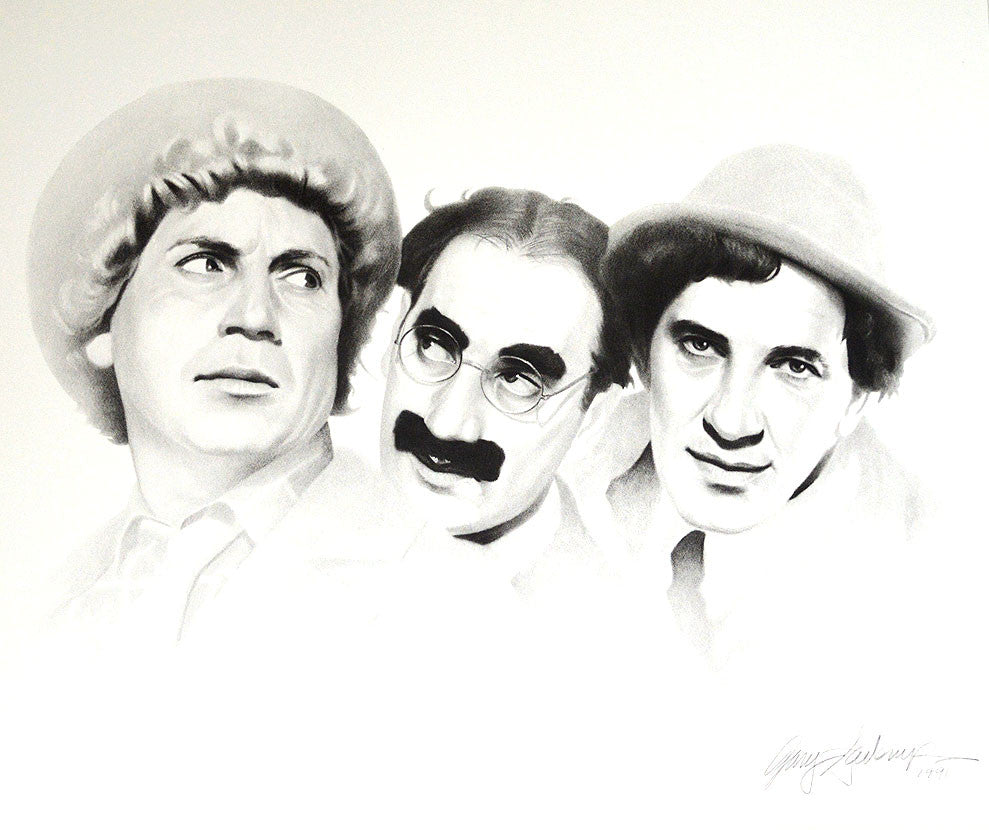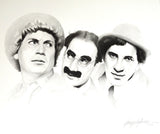Marx Brothers by Gary Saderup
The Marx Brothers were an American family comedy act that was successful in vaudeville, on Broadway, and in motion pictures from 1905 to 1949. Five of the Marx Brothers' thirteen feature films were selected by the American Film Institute (AFI) as among the top 100 comedy films, with two of them (Duck Soup and A Night at the Opera) in the top twelve. They are widely considered by critics, scholars, and fans to be among the greatest and most influential comedians of the 20th century. The brothers were included in AFI's 100 Years...100 Stars list of the 25 greatest male stars of Classic Hollywood cinema, the only performers to be inducted collectively.
The group are almost universally known today by their stage names: Chico, Harpo, Groucho, Gummo, and Zeppo Marx. The core of the act was the three elder brothers: Chico, Harpo, and Groucho. Each developed a highly distinctive stage persona.
Harpo and Chico "more or less retired" after 1949, while Groucho went on to begin a second career in television. The two younger brothers, Gummo and Zeppo, did not develop their stage characters to the same extent. The two eventually left the act to pursue business careers at which they were successful, as well as a large theatrical agency for a time, through which they represented their brothers and others. Gummo was not in any of the movies; Zeppo appeared in the first five films in relatively straight (non-comedic) roles. The performing lives of the brothers were brought about by their mother Minnie Marx, who also acted as their manager.







